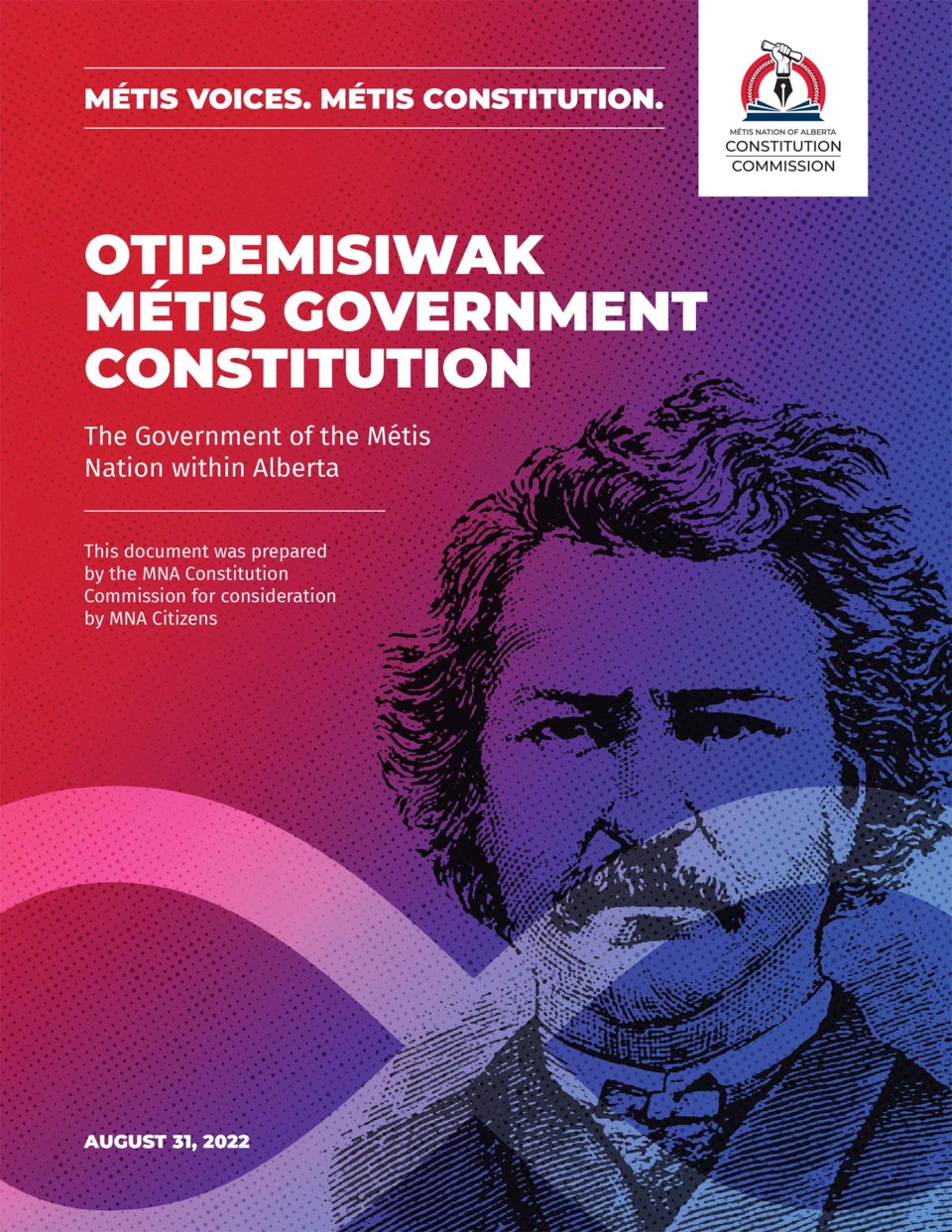Métis Week is back in St. Albert, and with it comes a vote which could mark a major step forward for Métis rights in Alberta.
Métis Week runs from Nov. 14 to 20 in Alberta. This annual celebration of Métis culture and history pays tribute to Métis leader Louis Riel, who was executed Nov. 16, 1885.
St. Albert city council will mark Métis week by raising the Métis flag at St. Albert Place at 11 a.m. Nov. 16, said city indigenous relations co-ordinator Dana Giddings. Demonstrations of Métis fiddling, jigging, and storytelling will follow.
The St. Albert–Sturgeon Métis Local No. 1904 will host a free dinner at St. Albert Place on Nov. 19 to bring the community together during Métis Week, said Josh Morin of Michif Cultural Connections. Email [email protected] for details.
Constitution vote
This year’s Métis Week celebrations coincide with a historic vote on the Otipemisiwak (Cree for “the free people”) Métis Government Constitution.
Alberta’s Métis have a long history of self-governance dating back centuries to the laws of the buffalo hunt, said Alexandra Despins, an educational programmer at the Musée Héritage Museum familiar with the constitution vote. Colonization stripped the Métis of this right to governance. This constitution aims to restore that right.
The Métis Nation of Alberta effectively acts as a government for Alberta’s Métis, but has limited legal standing as it was formed under the Societies Act, Despins explained — federal and provincial officials can theoretically treat the group as just another non-governmental organization instead of a legal governing body.
In 2019, the MNA signed a deal with the federal government which said it would be recognized as a government if it passed a constitution and elected representatives, Despins said. This would allow for government-to-government negotiations of a modern treaty to address various rights.
The proposed constitution defines the territory of the Métis Nation in Alberta, citizenship in it, and the rights which come with citizenship (such as rights to harvesting, mobility, language, customs, and consultation). It also creates a government structure, one which bears close resemblance to the current structure of the MNA.
MNA vice-president Dan Cardinal said this new government will exist in parallel to current municipal/provincial/federal structures, interacting with each on Métis-related issues in a way similar to First Nations governments. The new government will have more legal authority to negotiate issues of interest to the Métis, such as health care, housing, and education.
Cardinal said some 54,000 MNA members are eligible to vote on the constitution’s ratification online, by mail, or at various polling stations. (St. Albert’s poll is at the St. Albert Inn.) Polls opened Nov. 1 and will close Nov. 30. The constitution will take effect if at least 75 per cent of ballots cast are in favour of ratification.
Sharon Morin of Michif Cultural Connections said this constitution was the result of some 90 years of labour by many Métis leaders.
“We’re going to finally birth the baby!” she joked.
Despins said the constitution would have little effect on non-Métis Albertans, but would make it more important for them to consider the views held by the federal officials who will be representing them during treaty negotiations.
“We’re your neighbours, your teachers, your students, we’re your friends. Let’s learn how to live together as equals,” she said.
Visit www.mnaconstitution.com for details on the vote.




